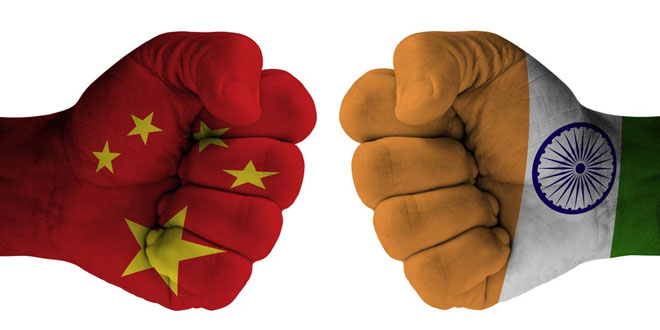Question: What was Phan Chu Trinh’s objective for Vietnam? How were his ideas different from those of Phan Boi Chau?
Answer:Both Phan Boi Chau and Phan Chau Trinh were Vietnamese nationalists to the core. Both were absolutely anti-colonialists and worked to free Vietnam from the French domination.
Chau and Trinh, both wanted to modernize Vietnam.
In short, both Chau and Trinh were looking at the same end – a free sovereign modern Vietnam.
However, they differed on the means to pursue the same end. Their views on different issues can be briefly tabulated as follows :
Advocated for the help of the court to resist the French.
Opposed to the idea of resisting the French with the help of the court.
Question: How did the textbooks represent Vietnamese during the period of French colonization? Explain.
Answer:
School textbooks glorified the French and justified colonial rule while Vietnamese were represented as primitive and backward.
- They were capable of manual labour but not of intellectual reflection.
- They could work in the fields but not rule themselves.
- They were “skilled copyists” but not creative.
- School children were told that only French rule could ensure peace in Vietnam. Since the establishment of French rule, the Vietnamese peasant no longer lives in constant terror of pirates.
Question: To counter the Chinese influence what steps did the French take in the sphere of education? What were the two broad opinions on this question?
Answer:
(I) To counter Chinese influence, French took the following steps:
- They dismantled the traditional education system of Vietnam.
- They established French school of Vietnamese.
- They propagated Western culture among Vietnamese youths.
- The few who learnt French and acquired French culture were to be rewarded with French citizenship.
(II) Two broad opinions:
- Some emphasized the need to use the French language as medium of instruction.
- Others were opposed to French being the only medium of instruction. They suggested French to be taught in higher classes and Vietnamese in lower classes.
Question: How was the idea of “looking modem” implemented in Tonkin Free School? Explain.
Answer:
- Students were suggested to adopt Western style of education.
- This education included classes in science, hygiene and French.
- Traditionally, Vietnamese youths kept long hair. They were asked to cut their hair short.
- These schools encouraged students to wear western clothes to play western games.
- French promoted the youths to study Western customs.
Question: How did the long war between the US and Vietnam come to an end? Describe.
Answer:
- The US failed to achieve its objective. Vietnam’s resistance could not be crushed.
- It proved costly to the US. There were high casualties on the US side.
- It was the first war shown on the television. Battles were shown on daily news world over.
- People were disillusioned with the US and its policy of war was criticized.
- Widespread questioning of government policy strengthened moves to end war. Finally, a pea treaty was signed in Paris in January, 1974.
Question: Explain the reasons for the French Colonizers to scrap the bounty programme for rat hunting in 1902-03.
Or
What was the purpose to start ‘Rat Hunt’ programme by the French in Vietnam in 1902? How the purpose got defeated?
Or
Describe the ‘Rat Hunt’ activity introduced by the French in Vietnam.
Answer:
(1)
- The modern part of Hanoi was struck by bubonic plague. To fight the plague, French started Rat Hunt programme in 1902.
- The people were paid for each rat they hunted.
(2)
- The purpose of rat hunt was finally defeated.
- The French hired Vietnamese workers to catch the rats and paid them for the same. This proved a failed attempt.
- Vietnamese be fooled the government by just showing the tail and allowing the rate to go free.
- They took it as a way to earn profit. Defeated by the resistance of the weak, the French were forced to scrap the bounty programme.
Question: Write a note on Giuseppe Mazzini.
Answer: Giuseppe Mazzini was born in Genoa in 1807, and he became a member of the secret society of the Carbonari. As a young man of 24, he was sent into exile in 1831 for attempting a revolution in Liguria. He subsequently founded two more underground societies, first, Young Italy in Marseilles, and then, Young Europe in Berne, whose members were like-minded young men from Poland, France, Italy and the German states. Mazzini believed that God had intended nations to be the natural units of mankind.
Question: Write a note on Count Camillo de Cavour.
Answer: Chief Minister Cavour who led the movement to unify the regions of Italy was neither a revolutionary nor a democrat. Like many other wealthy and educated members of the Italian elite, he spoke French much better than he did Italian. Through a tactful diplomatic alliance with France engineered by Cavour, Sardinia-Piedmont succeeded in defeating the Austrian forces in 1859. Apart from regular troops, a large number of armed volunteers under the leadership of Giuseppe Garibaldi joined the fray.
 Class Notes NCERT Solutions for CBSE Students
Class Notes NCERT Solutions for CBSE Students





